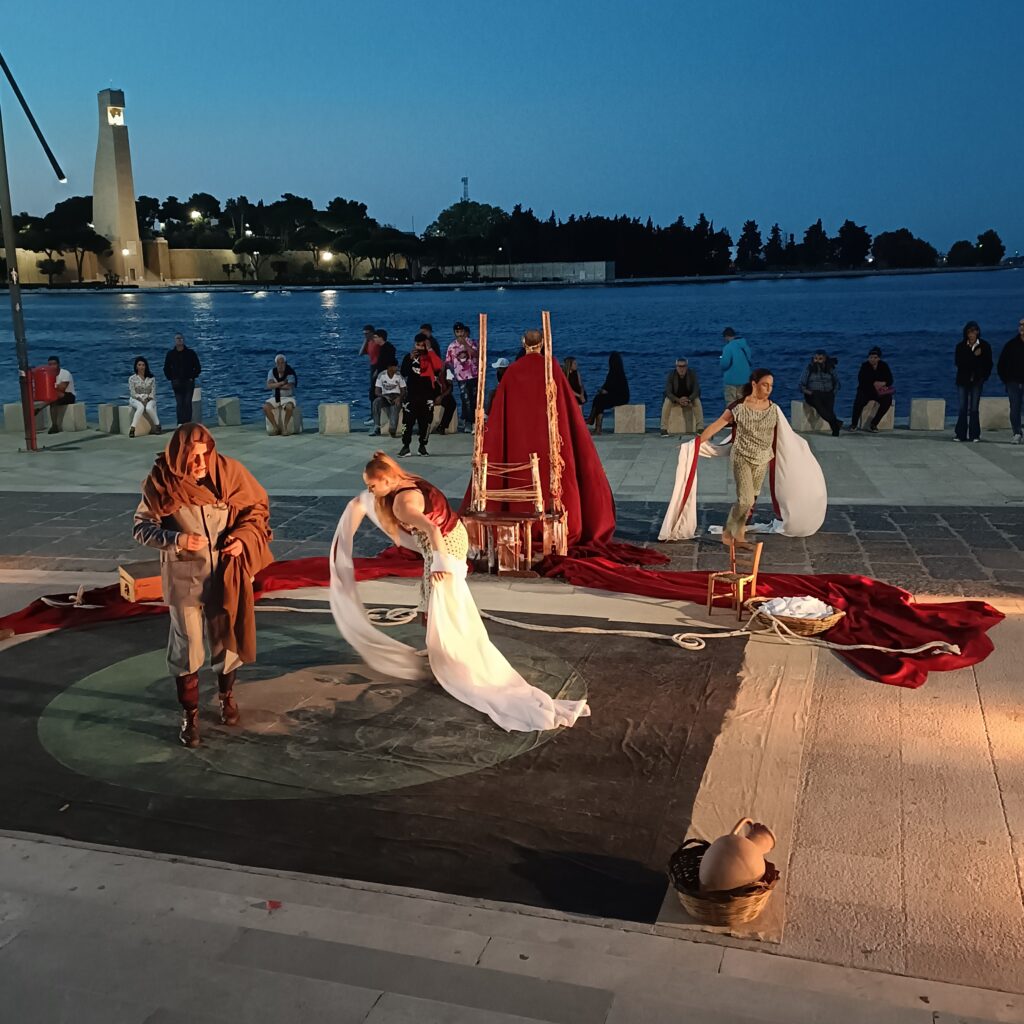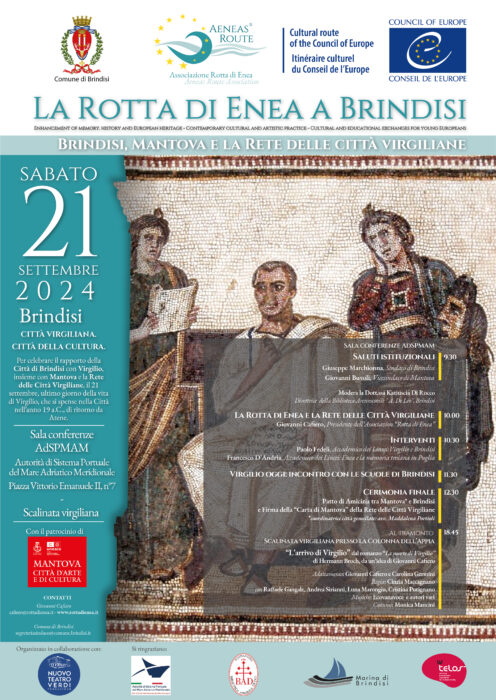The network of the cities linked to the biography and the work of Virgil has welcomed a new protagonist: the city of Brindisi, the final step of the existential path of Aeneid’s poet. The “Virgilian cities” network, a promotional vehicle for the cultural heritage of the Mantuan poet and the territories and places linked to his life and sung in the Aeneid, was born in 2023 and promoted by the Municipality of Mantua, in collaboration with the Aeneas Route Cultural Association, the cultural route certified by the Council of Europe in 2021.
To celebrate this new entry, the Municipality of Brindisi and the Aeneas Route Organization with the patronage of Mantua organized the conference “La Rotta di Enea a Brindisi: Brindisi, Mantova e la rete delle città virgiliane” on the 21st of September 2024, the date that marked the last day of Virgil’s life. The author died in Brindisi in 19 BC, returning from a trip to Athens.
With the inclusion of Brindisi, the municipalities that adhered to the Virgilian cities network are now 16. In addition to Mantua and Borgo Virgilio; the network includes Orta di Atella, Sant’Arpino, Succivo, Frattaminore, the municipalities of the Atella’s site connected with ancient Italic theatrical traditions; Cremona, where Virgil stayed during his training; Bacoli e Centola-Palinuro, linked to the Aeneid’s characters, the trumpeter Miseno and the loyal helmsman Palinuro, Naples, where Virgil stayed for a long period of time leaving a trace in the city’s history and in the popular devotion (“Virgil Magician”); Quarto e Pozzuoli where the descent into the netherworld of VI Book of Aeneid takes place (Cumae and Lake Averno); Erice, summit of the Sicilian triangle (with Trapani and Segesta) linked to the image of Anchises, Monte Procida linked to the death of the Trojan hero’s nurse, The Metropolitan City of Rome, the last step of Aeneas’ trip. All the places linked to the life of Virgil or to the steps of Aeneas’ trip in Italy.
The Virgilian cities can be recognized for the values represented in the work of Virgil, European poet par excellence, with the story of the cultural Mediterranean origins of the European civilization represented by the Aeneid, a poem capable of a wonderful synthesis between cultures from the east, the Italic virtues of pietas, the respect and devotion for old people (Anchises), the responsibility towards new generations (Ascanius) and the new attention to the person that will find the expression a few decades later in the early Christianity.


